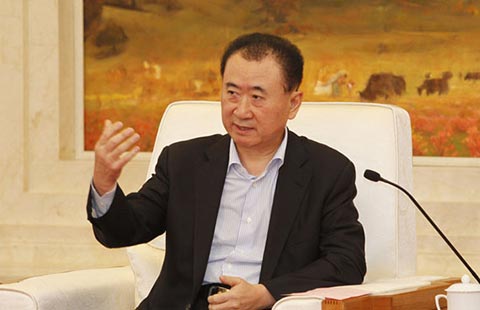Steady Q3 economic growth makes room for deleveraging efforts
(Xinhua) Updated: 2016-10-21 09:26BEIJING - China's economy expanded at a steady 6.7 percent in the third quarter and appears on track to meet the government's full-year target, leaving room for more deleveraging efforts as easy credit has stoked financial risks.
As external demand remains soft, the stabilization of China's economy is largely propped up by improving domestic demand accompanied by increased government spending and bank lending, especially in the property and automobile sectors.
With GDP growth on track, the government has signaled a shift in policy focus away from stimulus and toward containing financial risks caused by easy credit.
China's new lending boomed again in September with loans to households continuing to grow rapidly, official data showed Tuesday, adding to concerns that consumers were following the same high-leverage path as corporations.
To deleverage the economy, the government rolled out a debt-for-equity swap program in early October to bring down the corporate leverage ratio, while over a dozen Chinese cities have introduced measures to cool overheated markets and crack down on speculators, leading to marked drops in sales.
China will release the September property prices of 70 major cities on Friday, which could see both month-on-month and year-on-year increases.
Economists believe the greatest near-term risk for China is a possible sharp correction in the red-hot property market, which accounts for about 15 percent of GDP.
The negative impact on fixed asset investment growth from property tightening may be immediate, but more moderate compared with the 2012-2013 tightening cycle, said Liang Hong, chief economist with China International Capital Corporation Limited, in a research note.
On the other hand, more personal wealth may be allocated to consumption growth compared with the "panic-buying" phase of the property boom, while the lagging wealth effect from property price inflation in the past year may also pass through to stronger discretionary consumption growth in the next four to five quarters, Liang added.
With the groundwork done in recent months to step up public-private-partnership project implementation, and a lagging lift from the earlier release of special construction funds and related credit, we may not see the government push much more on fiscal policy until growth weakens markedly, said UBS China economist Wang Tao.
More targeted property cooling measures are possible if buyer sentiment in overheated cities does not ease soon, Wang said, adding no notable credit acceleration or interest rate cuts are expected by year-end.
Japanese securities trader Nomura predicted in a research note that China's central bank will maintain a tighter liquidity regime than in the first half of 2016 in an attempt to curb excessive financial leverage and maintain a positive yield spread over G3 markets to slow the pace of foreign exchange outflows.
Nomura raised its 2016 real GDP growth forecast to 6.6 percent from 6.5 percent given stronger-than-expected Q3 growth while maintaining its Q4 GDP growth forecast of 6.4 percent year on year.
- PPP-funded transport projects worth $667.6 billion
- Customs department plans flexible policies to boost foreign trade
- China's express delivery sector continues to grow
- China poised to meet 6% industrial output growth target
- China's tax revenue up 7% in nine months
- Honor launches new smartphone ahead of 11/11 shopping festival
- LeEco makes a splash
- MIIT pushes 5G tech experiment phase


















